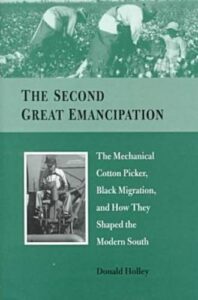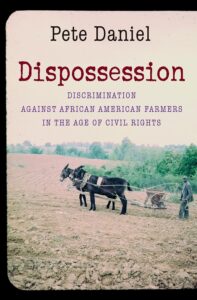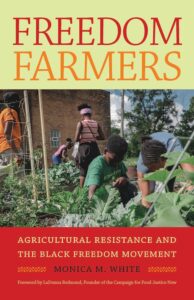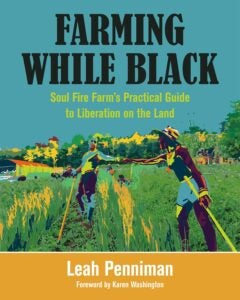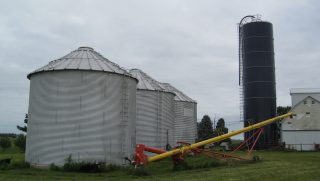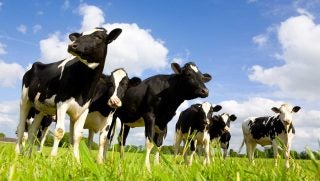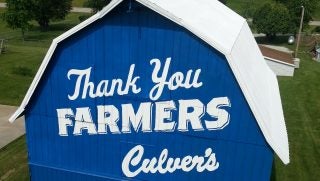You may write me down in history with your bitter, twisted lies,
You may trod me in the very dirt but still like dust,
I’ll rise. — Maya Angelou
As Maya Angelou artfully recalled the challenges and perseverance of the Black American in her lifetime and career as a poet, capturing the past, present, and future stories of our Black agriculturalists’ challenges and success stories lie in the words of our Black agricultural writers. They share the identity of our Black Agriculturalists and keep the reminders of our tumultuous past in this country alive, while inspiring our future through the perseverance garnered by our ancestry.
As a Black agriculturalist, I have always been inspired by those who have come before me, beside me, and even the ones sitting in my classroom itching for their turn to inspire the next generation of Black industry leaders in agriculture. So, I have created a book wishlist to continue learning about our past to be inspired toward our future in agriculture.
I hope what I learn from these readings will allow me to be a better advocate for people of color in agriculture in my classroom and out in the world as an informed voter and citizen of this country.
Don’t let learning about Black history end in Black History Month. Sharpening our knowledge on this topic, along with other stories of people of color in agriculture is an enrichment of the mind, allowing us to understand who is in our agriculture community and how we can best support one another.
Follow along with me in this enrichment exercise as I take us through four books, topics centering on Black agriculturalists from slavery era to today, aimed to be completed by the end of 2024!
*Note for readers*: Add these books to your Amazon list — this is something that has helped keep me accountable since I have become a frequent Amazon purchaser. Being on the list in my Amazon account always reminds me that I need to get on it!
Book 1 of 4: The Second Great Emancipation: The Mechanical Cotton Picker, Black Migration, and How they Shaped the Modern South
This statistical and narratorial analysis written by Donnal Holley may not be the first grab your eye off the shelf, but it’s a great place to start prior to reading some of the other novels on this list.
I actually started reading the text, and as an avid daily reader it is definitely a book to pace yourself with by reading a fiction book alongside to balance out the highly historical educement.
The text describes the region’s Black communities that grew cotton post-plantation era and the impact agriculture’s mechanization movement progressed the civil rights movement and proved a short period of peace in the southern United States.
Book 2 of 4: Dispossession: Discrimination Against African American Farmers in the Age of Civil Rights
This is a book that agilely is to be read right after book 1.
Written by author and historian Pete Daniel in 2015, the book showcases the struggles of black farmers during the civil rights movement, specifically from the U.S. Department of Agriculture. Even though a historical piece, it still speaks very much to current events — as Black farmers still face discriminatory practices and policies of the USDA. To read more about current events related to this topic, read this previous column.
While most writers about the area of mechanization of agriculture share progressive and heroic stories of how the United States grew through the industrial revolution, this text seeks to counteract those narratives and shine light on a chapter of our agriculture history that sought to hinder Black agriculturalists from getting ahead in our country through bureaucratic means and discriminatory policies.
Book 3 of 4: Freedom Farmers: Agricultural Resistance and the Black Freedom Movement
White’s way of revealing to the reader an inverse view on sharecropping is reviewed as “fascinating” and “highly recommended”.
Instead of viewing the “scholarship” of sharecropping as oppressive and exploitative, Monica M. White writes of sharecropping as resistant and meaningful to the food justice movements of the country’s biggest cities with the greatest low-income areas. Through stories such as Fannie Lou Hamer, an internationally renowned southern activist and land owner, White tells a tale of community and cooperative, health food systems that are self-reliant and fight against discrimination for all those involved in its effort.
Book 4 of 4: Farming While Black: Soul Fire Farm’s Practical Guide to Liberation on the Land
Rounding out our wishlist is a more modern story of the Black farmer. Informed by our history, Leah Penniman (co-creator of the Black and Latino Farmers Immersion program) provides the reader a “concise guide to all aspects of small-scale farming through the wisdom of farmers and activists alike.”
From examples of business planning to preserving harvests, from culturally appropriate recipes, seed selection, and soil fertility, this book offers so much to aspiring farmers and large scale farmers that we should all lean in and listen to for inspiration in sustainable agriculture and food justice.
Bre Holbert is a past National FFA President and studied agriculture science and education at California State-Chico. “Two ears to listen is better than one mouth to speak. Two ears allow us to affirm more people, rather than letting our mouth loose to damage people’s story by speaking on behalf of others.”

